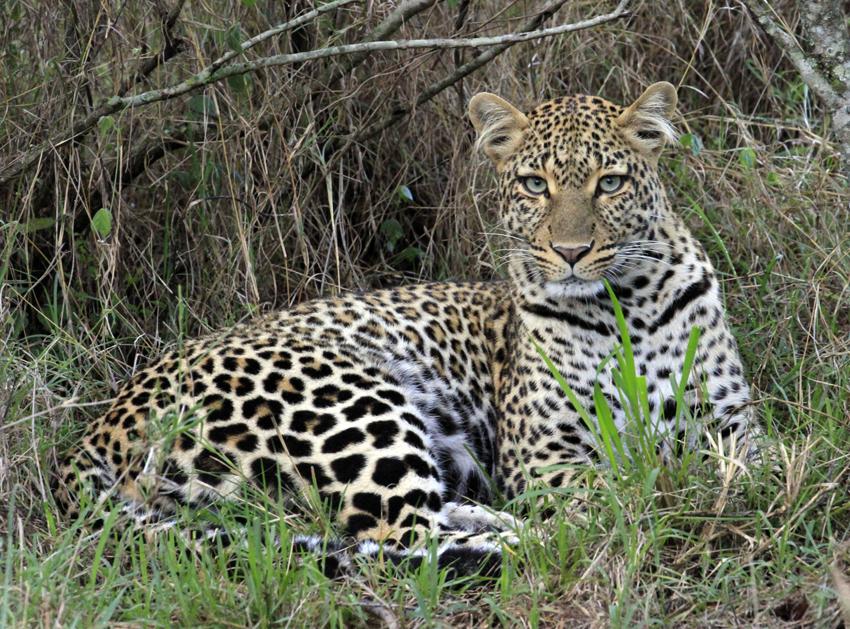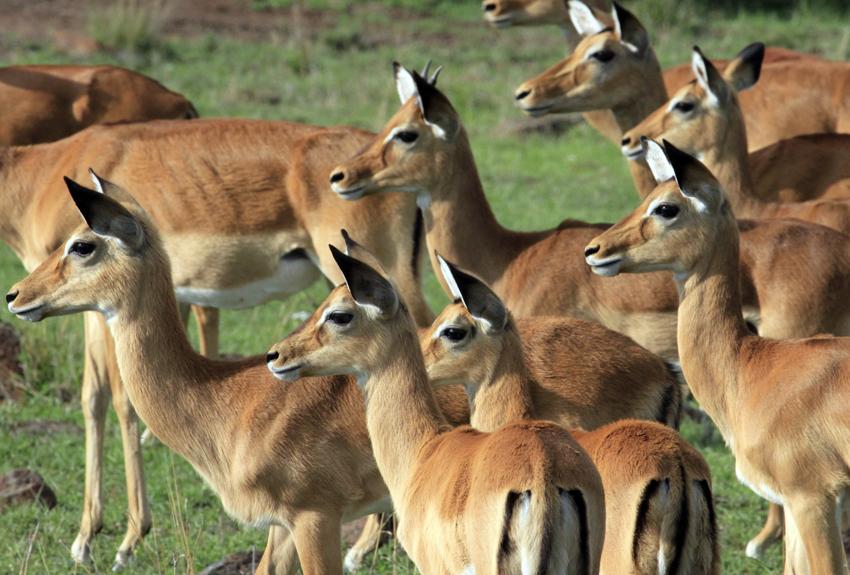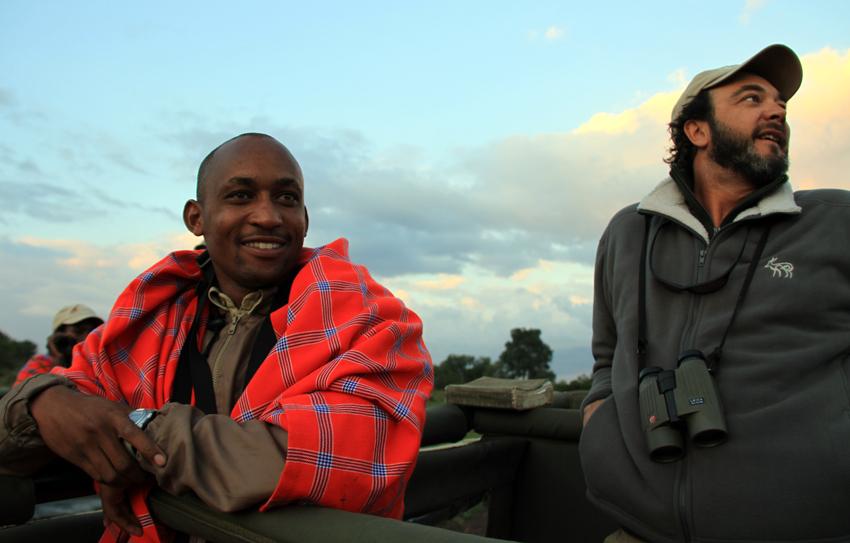Your support helps us to tell the story
From reproductive rights to climate change to Big Tech, The Independent is on the ground when the story is developing. Whether it's investigating the financials of Elon Musk's pro-Trump PAC or producing our latest documentary, 'The A Word', which shines a light on the American women fighting for reproductive rights, we know how important it is to parse out the facts from the messaging.
At such a critical moment in US history, we need reporters on the ground. Your donation allows us to keep sending journalists to speak to both sides of the story.
The Independent is trusted by Americans across the entire political spectrum. And unlike many other quality news outlets, we choose not to lock Americans out of our reporting and analysis with paywalls. We believe quality journalism should be available to everyone, paid for by those who can afford it.
Your support makes all the difference.It could almost be a scene from The Lion King. Four lionesses lie on the plain enjoying the last of the sun’s rays. Some cheeky jackals approach hoping for scraps, yelping like demented little dogs as they goad the lazy lions to hunt. Three curious hyenas slouch onto stage, all hunched shoulders and sly smiles flashing teeth that look too big for them. “Can anyone tell me an interesting fact about the female spotted hyena?” Clint asks. “They have a false penis,” comes the reply. The Lion King moment is over.
It’s one of those facts that make guests on safari do a double take. Why would a female have a penis? Clint explains: they are the dominant sex in hyena society, have way too much testosterone and it is in fact an extended clitoris. Here endeth the lesson.
But there’s plenty more where that came from. We’re on the annual Pyramids of Life refresher course for the award-winning guides of Alex Walker’s Serian Camps, boutique camps in Kenya’s Maasai Mara and Serengeti in Tanzania.
Technically, this is a training camp for professionals; but now the course has been opened up to members of the public, too. And if you’re looking for a different kind of safari, this is certainly it.
“The point of ‘Pyramids’ is to take the passivity out of what safaris have become – sitting in a jeep being driven from sighting to sighting,” Walker tells me. “We want guests to see through the eyes of a top guide, to open their minds to a lifetime of curiosity. It’s an invitation to take time, to dive deeper.”
“Most guide courses are classroom-based but this is our classroom,” trainer Clint Schipper enthuses, sweeping his arms out to present the beauty and the beasts of Mara North conservancy where the luxury Original Serian Camp, our home for the next five days, is based. “It’s an immersive course. We spend all our time in the bush, let situations evolve and learn from them. Primarily Pyramids is a guiding experience but it’s good to have guests along. They don’t have to be safari experts; they just need an interest in all wildlife, not simply the Big Five.”
Serian’s guides have mixed skillsets. The older ones may not speak perfect English, but the bush is in their blood. Younger ones – mostly graduates of the respected Koiyaki Guiding School for Maasai in nearby Naboisho Conservancy – speak excellent English, but might have less bush experience. Unusually, some are women, defying male dominance in both their profession and their culture. Yet they all share a tangible passion for wildlife, with old school and new teaching and learning from each other.
Walker is right – there’s no passivity here. We spot elephants in the distance but instead of rushing towards them, study their poo up close, learning the difference between elephants’ and hippos’ droppings: elephants have sticks in theirs, hippos eat only grass.
We watch a striking female leopard calmly spraying the trees to attract nearby males. And then we see a gripping ‘Circle of Life’ scenario starring lions and buffalos. “Introduce the sighting to guests,” Clint suggests to our guides. “Then just be quiet while they take it in.”

We watch. Hidden in a bush are three five-week old cubs and their mum, lying absolutely silent. Four huge bulls caked in mud walk towards them. If they see the cubs they will kill them, Clint explains, driven by a protective instinct for their own future. “Let’s just sit and see what happens,” he whispers. “Maybe nothing will happen. Or it could be a once-in-a-lifetime sighting.”
We wait in our two Land Cruisers: Clint, 10 guides, my partner and me, none of us uttering a word. One by one, the buffalos amble past the bush, unaware of the predators until the last bull pauses and peers straight in the lions’ direction. I hold my breath, not wanting to look but feeling compelled, until eventually the bull moves quietly on. “Those little cubs came within three metres of losing their lives,” says Clint, as we breathe again.
But it’s not all about the obvious sightings. I’m not particularly interested in birds, but Clint’s enthusiasm is contagious as he pours out facts. The greater honeybird will lead people to beehives by singing, hoping for beeswax as its reward. Only five of Africa’s 15 kingfishers actually eat fish. The tiny (10cm) pied wheatear will fly non-stop across the entire Sahara on its 6,000-mile journey from Norway to Kenya. My disinterest turns to fascination.
Our walks are short in distance but long in duration, although time becomes irrelevant as we constantly stop to study insects, rocks, flowers and trees, frogs and damselflies, butterflies, poo and paw prints. On foot we spot hippos, a new-born giraffe and a lone hartebeest, but we’re mesmerised by an army of Matabele ants marching on a mission to massacre termites. This is a nature walk like no other – a never-ending fusion of scientific knowledge and bush wisdom.
On night drives, we dip into astronomy, finding constellations in inky-black skies as the nocturnal wildlife awakes. We learn about weird creatures like the bubbling kassina, a frog with a distinctive bubble-popping call, and the zorilla that looks like a mongoose crossed with a skunk. Lions prowl silently past our vehicle searching for supper as a tiny bushbaby, all eyes and ears, scurries away.

The following morning, we leave camp before sunrise to experience the dawn chorus. “The idea is just to sit here in the dark with your guests,” Clint whispers to his students. “Let’s listen to the waking of the day. We experience this every day and we know how wonderful it is. Imagine if you’d never heard it before.”
On cue the birds start performing. Songsters like the nightjar, rufous-naped lark, ring-necked dove, striped kingfisher, guinea fowl and African cuckoo take turns to chime in until the birdsong builds to a beautiful crescendo. The cow-like smell of buffalos wafts our way. Impalas’ dainty hooves trot past our vehicle. In the dark, a hyena laughs, a lion roars, a jackal yelps. This is what Pyramids of Life is all about. As dawn breaks, the Lion King moment is back.
Travel essentials
Getting there
Aardvark Safaris offers a seven-night Pyramids of Life trip from £4,765pp including international and internal flights, transfers, conservancy fees, six nights full board accommodation at Alex Walker’s Serian and one night full board at Ololo Lodge in Nairobi National Park.
More information
British nationals require a visa to enter Kenya, available online at evisa.go.ke or on arrival at port of entry costing $51, or from Kenya High Commission in London costing £30.

Join our commenting forum
Join thought-provoking conversations, follow other Independent readers and see their replies
Comments